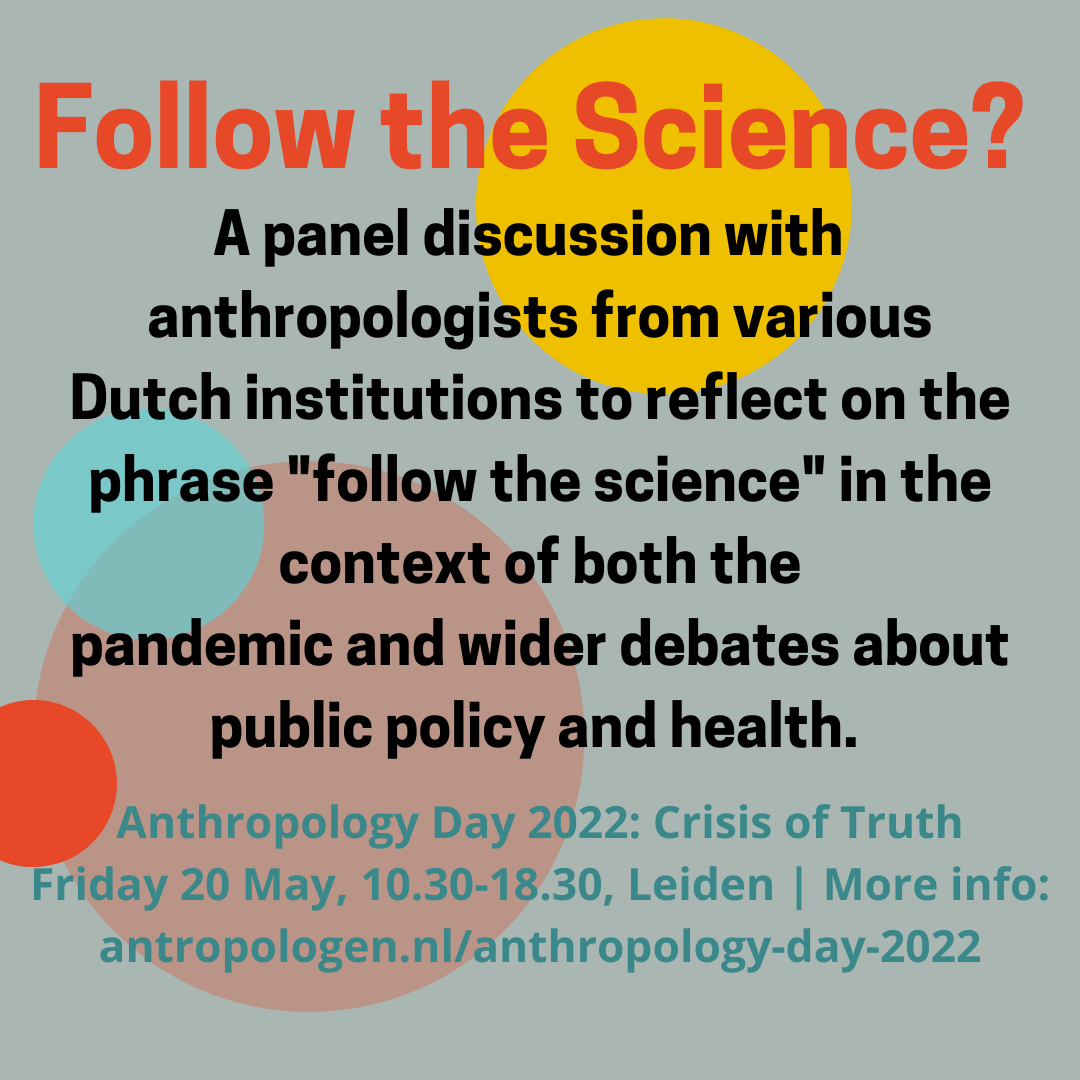Panel discussion with Annemarie Samuels, Danny de Vries, and Stuart Blume, organized by Andrew Littlejohn. 
Debates over social and political responses to COVID-19 often feature calls to “follow the science.” But which science or sciences should we follow, and how? The virus is a social phenomenon spread through contact between people and tackled by reducing such contact. What and whom we should believe about COVID-19 are also major issues, as injunctions to “follow the science” and scientists themselves highlight. However, when people use the phrase, they rarely mean the social or political sciences, that is, the branches concerned with how people interact, what they believe, and the nature of power (including the power of experts).
Anthropologists have argued for including anthropological and sociological insights regarding these dimensions of human experience into our explanations of the pandemic’s origins, spread, and uneven impacts, particularly on low-income groups, communities of color, and people in the Global South. They have also provided critical perspectives on some of the epistemological assumptions implicit in calls to follow the science. As Adams and Nading write, anthropologists have shown how seemingly objective metrics such as case fatality can be mobilized to wildly differing effects in different places and how deliberations over what constitutes reliable evidence are as much social as scientific processes.
In this panel, we seek to further these debates by inviting anthropologists from Dutch institutions to reflect on the phrase “follow the science” in the context of both the pandemic and wider debates about public policy and health.
